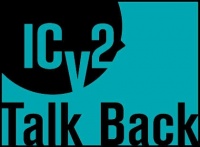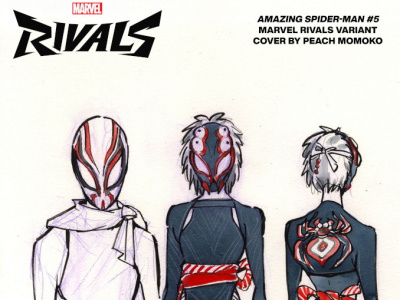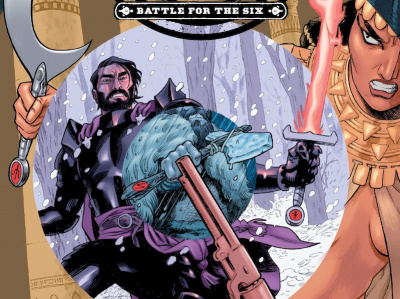 Michael Breakfield of Lone Star Comics in Arlington, Texas shares his thoughts on the upcoming DC reboot (see "DC Renumbering All Titles" and "DC Revising Characters in Reboot").
Michael Breakfield of Lone Star Comics in Arlington, Texas shares his thoughts on the upcoming DC reboot (see "DC Renumbering All Titles" and "DC Revising Characters in Reboot").On May 31st, DC Comics made a huge announcement: In three months, the entire DC Universe gets a make over, with 52 titles rebooting to start over from #1 (see "DC Renumbering All Titles"). The week of August 31st, DC will ship only two comics--Flashpoint #5 (the apparent catalyst for this undertaking) and Justice League #1 (the flagship title from which all the rest will flow).
Now, around the water cooler and across the web, many are split on whether this is a good thing. One retailer even went so far as to say "publishers may see this as a jumping-on point, but I see it as a jumping-off point." The issue has been heavily debated here at the home office of Lone Star Comics. I myself have written several columns denouncing the merits and jeering the prospects of re-launches (most recently in my column The Odinson's Pick of the Week: Avengers #12.1). I've heard the arguments against a reboot by DC, but my opinion on the matter might surprise readers.
I think it's a great idea.
First, I'm excited about the prospect of reading a Justice League comic written by master scribe Geoff Johns, one of the best comic artists of the last twenty years. That is All Star talent for an All Star book. DC has also announced the creative teams for ten of the 52 launch titles (see "DC Announces 10 New Titles"). I'm also excited to check out Geoff Johns and Ivan Reis' take on Aquaman and Ethan Van Sciver and Gail Simone's approach to Firestorm, two underrated characters finally getting some major star power behind them. DC is putting forth the effort to get major talent on their titles and provide the best books possible for the readers.
Another reason this is a great idea is that it's been done before, and it worked. In the mid-90s, Marvel did this very thing--perhaps on a smaller scale, but nonetheless successfully. In the wake of Onslaught, the world thought that its greatest heroes sacrificed themselves to save the world. They were in fact saved by Franklin Richard's mostly untapped cosmic powers and the universe of Heroes Reborn was created. For the first time in Marvel's publishing history Captain America, Fantastic Four, Iron Man and the Avengers existed outside of the 616 and their comics restarted from issue #1. And like DC is doing now, Marvel turned the reigns of their flagship characters over to the best the business had to offer. Jim Lee, Rob Liefeld, Jim Valentino, Jeph Loeb, Walt Simonson, Chuck Dixon, Brett Booth, Ron Lim, and Whilce Portacio--this was the All Star creative team behind this endeavor. The Marvel Universe was re-imagined by a new generation of superstars for a new generation of readers. Heroes Reborn paved the way for Heroes Return, which brought Earth's Mightiest Heroes and Marvel's First Family back to the fold of the Marvel Universe proper for a renaissance. Mark Waid and Ron Garney returned for Captain America, Scott Lobdell, Chris Claremont and Alan Davis re-launched Fantastic Four, and Dan Jurgens and John Romita, Jr. (for Thor) and Kurt Busiek and George Perez (for Avengers) produced some the best super hero comics ever read.
Finally, the cherry on top that makes this a great idea is that the company that did this sort of thing first, and best, is doing it again. From the 1930s up until 1985, for over fifty years, DC Comics had been telling their stories. Starting in the Golden Age with Action Comics #1, through the Silver Age with sci-fi takes on classic heroes Green Lantern and the Flash, and on up through the Bronze Age when the fantastic imagination of Jack "the king" Kirby created the New Gods, DC Comics had built a vast vault of comic book goodness. But the landscape had become convoluted and stale. It was time for change. It was time for an update. It was time for, wait for it, a reboot.
Enter: Crisis on Infinite Earths.
Marv Wolfman and George Perez, the masterminds behind arguably one of the greatest comic book runs of all time (New Teen Titans), united to tell not only one of the greatest super hero epics of my generation, but they reestablished the entire continuity of the DCU into one cohesive universe. For the next twenty-fives years this would become known as the "Post-Crisis" DCU. In this Post-Crisis DC titles like Superman, Wonder Woman, SHAZAM, Justice League, and the Flash were all rebooted and started over from #1. Names like John Byrne, George Perez, Roy Thomas, Mike Baron, Jackson Guice, Keith Giffen, J.M. DeMatteis, and Kevin Maguire were given control and they produced, to this day, some of my all time favorite DC stories.
Origins were tweaked. Superman was more grounded in his Smallville roots and though still very strong, the Man of Steel could no longer blow out a sun as easily as a child would a birthday candle. Wonder Woman's story was more interwoven into Greek mythology and her adventures became more epic and reminiscent of Walt Simonson's Thor run. The Flash had consequences for using his super human speed. And the Justice League was easily the funniest and most entertaining book on the shelf at that time.
Growing up, other than New Teen Titans and Superman, I hardly read any DC comics. I was, and for the most part still am, a Marvel guy. That was until I read Crisis on Infinite Earths, a story I gravitated toward because of the tie-ins with the Teen Titans. This was an exciting time to be a comic fan. I didn't have to know the grand history of every single DC character, though reading Crisis made me want to go back and try. Crisis led me to the Man of Steel, which led me to Legends, which led me to SHAZAM: The New Beginning, which led me to Justice League. See where I'm going with this? I was a new reader to the DC fold and they welcomed me with open arms and provided me with, wait for it, the perfect jumping-on point.
And that is why DC's reboot in August is a great idea. It's not for me... it's not for the comic fans that are lifetime readers. Despite all the grand standing and the declarations of "I'll never buy this book again!" A lot of these same things were said when the Post-Crisis DCU was launched, and everything seemed to work out pretty good then. Bottom line is, yes we will read that book again. We are comic fans, always have been and will be to the day we die. And try as they might sometimes, the industry is never going to be rid of the diehard comic fan. This reboot is for the new reader. That 10-year-old kid that doesn't know who Lori Lemaris is or why there have been six Robins (Dick Grayson, Jason Todd, Tim Drake, Stephanie Brown, Damian Wayne, and Carrie Kelly. This is for the new reader that doesn't know what Earth-2 is or that Wonder Woman used to fly around in an invisible jet. This is yet another exciting time to be a new comics fan in the making.
It's bold, it's brash and yes, the launch of the New DC Universe is a great idea. I can't wait to see how it all unfolds.
The opinions expressed in this article are solely those of the writer, and do not necessarily reflect the views of the editorial staff of ICv2.com.







